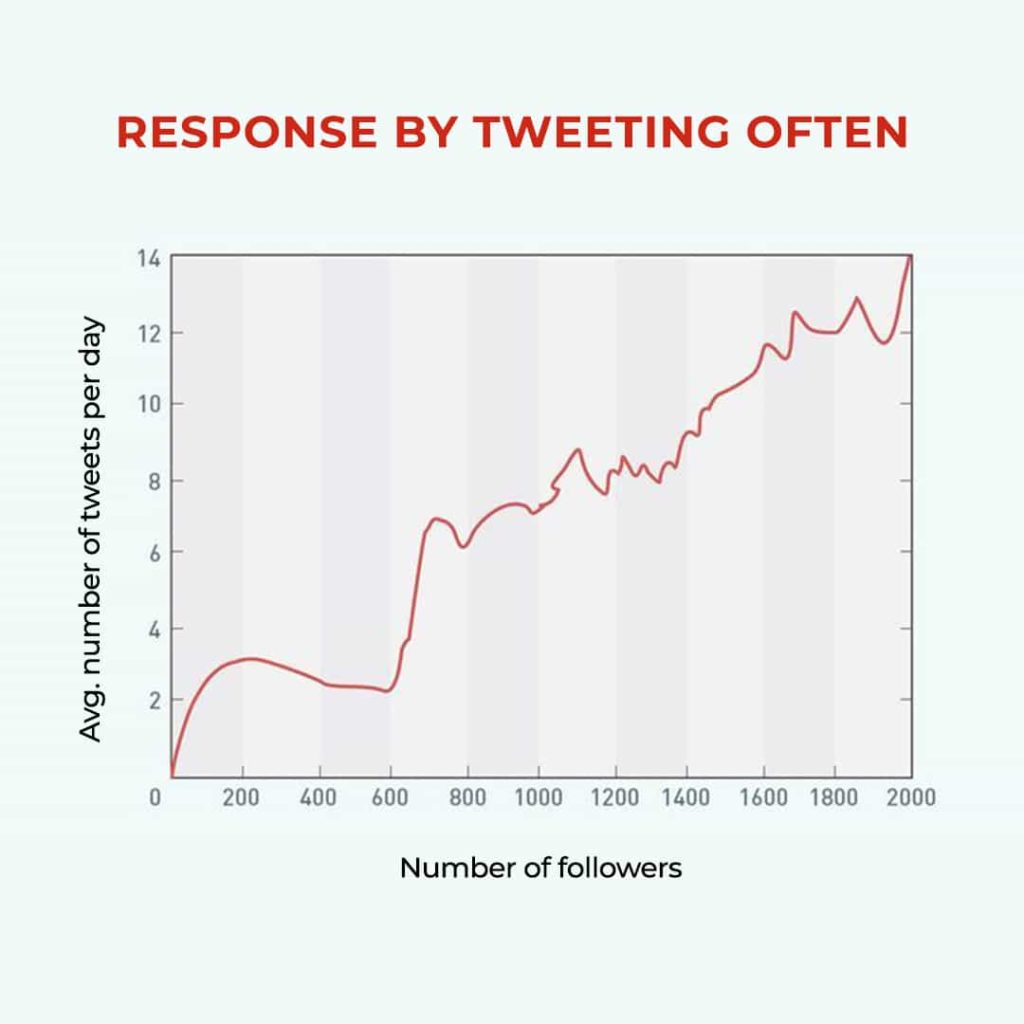Elon Musk? Futuristic technology. Neil Patel? Digital marketing. Greta Thunberg? Environmental activism. Each name sparks an instant definition.
So, how do people define you when they hear your name? The key is a solid personal brand.
If you’ve been trying to build one with barely any results, you’re not alone. There’s no set formula and it takes a lot more time than you’d think.
Sometimes, the best way to learn is from your mistakes. Here are eight common personal branding mistakes you might be making on your path to building a dedicated audience:
- Being unsure of your purpose
- Underestimating the commitment involved
- Trying to be someone you’re not
- Not creating your own content
- Focusing on yourself too much
- Not networking
- Forgetting to engage on social media
- Not taking time out to learn and stay relevant
1. Lack of clarity on the purpose of your personal brand
You know you want to be known for something, but you’re not quite sure what that’s going to be yet. Obviously, if you’re unsure of your purpose, your target audience will be too. They won’t even know they’re the target.

Knowing why your personal brand exists will provide the foundation on which all other elements are built. Listen to Simon Sinek’s thoughts on the subject:
These days, the internet is saturated with a constant stream of content and creators. This is why you need to make the purpose of your online presence clear.
Yes, your personal brand should be about you, but you need to hone your focus. You may love classic rock and astrophysics equally, but too much variety can equal confusion. Clarity also means keeping things simple. Don’t try to do too much too soon if it’s going to be a struggle.

If you’re trying to align your personal brand to an established business, this part will be a lot easier. If you have expertise in a particular area, again, there’s your niche.
However, you can become an expert in nearly anything if you’re willing to put in the effort. It doesn’t have to be something you’ve done all your life.
In this case, step one involves finding your passion.
Once you’ve nailed that down, take some time to research your competitors and see how you can differentiate yourself. What’s your unique value? If it isn’t immediately obvious, it needs to be.
2. Underestimating the commitment involved
We live in an age of instant gratification. A new outfit, meal or date is only a few clicks away. But building a personal brand takes time – especially on social media platforms.
Whether you’re on LinkedIn, Instagram, or Twitter, it’s not as easy as it once was to get your name out there. Organic reach is in decline and digital advertising at an all-time high.
Between work and your personal life, finding time to build your personal brand might be difficult. Have you tried in the past and gotten side-tracked? Maybe this sounds familiar:
- Blogging activity is inconsistent
- No social media strategy
- Don’t bother networking
- No time spent learning/researching

If so, it’s time to change for the better.
There should always be a plan for where a business is heading; short-term and long-term. Your personal branding strategy should be no different.
We suggest a clear vision of the end goal and a plan of how you’re going to get there. Without this, you’ll probably see few (if any) results and give up.
Like anything, it’s challenging to stick to something until you see positive change. Please consider this when setting out your goals—give yourself a chance to achieve them.

If you’re a commitment-phobe, a solid overall plan can make things seem a little less overwhelming. To break it down:
- Don’t give yourself one primary goal: break it up into smaller, more achievable targets to keep you motivated.
- Be consistent: blogging once a month or less is ok (as long as you stick to it.)
- Create a plan: map out your days and weeks in advance to make the process easier.
- Network: join groups, online communities and attend events to get your name out there.
- Learn something new daily: constantly expand your mind to ensure you’re a better creator, curator and contact.
3. Trying to be someone you’re not
When society is seeking honesty and transparency more than ever, you have to be genuine. This means being open (and perhaps even a little vulnerable) when sharing your story.
Influencers started as regular people educating/inspiring others on social media with their background and daily life. It was the polar opposite of mainstream corporate advertising of the time, and popularity soared.
You may not want to become an influencer, but people still need to know where you came from and who you are as a person. It’s the human element of personal branding that will get your target audience on board.
In saying that, you can’t be everything to everyone. No matter how hard you try.

Don’t chop and change your focus to morph into something you think the market needs. You risk looking generic by covering too many topics. A solid personal brand should be anything but.
Personal branding marketers, here’s how to keep it authentic:
- Go with your gut (not with what’s popular)
- Own your mistakes
- Show people who you are and be confident about it
- Tell a good story and write like you’re talking to a friend
- Know your brand goals inside out
- Keep it simple
- Remain consistent in branding, image and quality
- Trust is built, not bought
- Don’t use stock imagery
- Follow a passion and it should come naturally!
This Forbes article summed it up:
“Get a handle on your personal brand, and then tell your digital story before you start expressing your point-of-view and exuding your brand. Starting with the real you is the key to ensuring that your online branding yields maximum value for you and your career.”
4. Not creating any personal brand content
While curated content is vital in all marketing strategies, the whole idea of a personal brand is about you. One of the biggest personal branding mistakes you can make is hiding behind your brand.
If you want people to be invested, you need to give them a reason to be. And creating your own content is a surefire way to entertain, educate and inspire.
Twitter Threads are a great starting point. Blogging is great too as it can be purely written.
If you’re not confident in front of the camera, don’t worry. Podcasting can allow you to inject more personality without worrying about the visual element.
If you want to take it further, you can graduate to vlogging. Then (once you’re confident) appear as a guest on any kind of media format.
Here are some steps to take on your content marketing journey:
- Twitter Threads and regular blogging
- Write a book/eBook
- Start a podcast
- Vlogging (e.g. a day in your life)
- Apply to be a guest on podcasts and webinars
5. Focusing on yourself too much
On the flip side, you may need to reassess this ratio if you’re a content-creating machine. Promoting yourself is what personal branding is all about, but you know that annoying guy who constantly goes on about himself? You don’t want to be that guy.
Some new businesses/startups or those new to content marketing think blogging about how great their product is will convince people to buy it, but that’s a huge personal branding mistake.
Remember, “no-one likes to be sold to but they love to buy”.
The odd inward-looking subject matter is handy to explain your service, but you should be focusing on what your product or service can do for your customers.
Online curation involves selecting, organizing and presenting content and information (typically using professional or expert knowledge). But this doesn’t mean sharing anything and everything you find, exactly how you found it.
Take your curation to the next level by adding personal insight to everything you share.
The most valuable benefit of this is that people will start to view you as a thought leader with unique perspective and knowledge.
Here are some of the benefits of content curation for your personal brand:
- Could earn the status of ‘thought leader’
- Allows you to build relationships with those whose content you’re sharing
- Expands your industry knowledge
- Increases brand awareness
- Acts as ‘test content’ to see how your audience reacts before creating something similar
6. Networking can prevent personal brand mistakes
Do you have a friend that you always go to for advice? One that’s stopped you from making a dumb decision? You need these relationships in business too.
Since you want to stand out, you need to be clear about who you’re standing with. How can you realise your unique value if you don’t connect with your community?
Sure, you can do your research, but you’ll only truly find out what you have in common with people by getting to know them. Working out how you differ is even more critical. If you are too similar to those with the same goals, it will be challenging to get noticed. Work those quirks.
Aristotle once said:
“In the arena of human life, rewards and honours fall to those who show their good qualities in action.”
When networking, it’s best to focus on those you’re meeting and what you can do for them. Everyone has value, and you want to be known as someone genuinely interested in learning from others.

If you’ve never networked before, here are some tips:
- Always have a plan before any event (pack those business cards)
- Do it to form genuine connections and relationships (not just to help yourself)
- Meet people through those you already know by asking for introductions
- Never dismiss anyone as unimportant
- Have a plan before any event
- Mix up virtual networking (LinkedIn messaging, online conferences) with in-person events
- Follow up and follow through with anything you promise
Networking can be a powerful addition to your personal branding strategy because learning from others’ expertise is invaluable.
7. Forgetting to engage on social media
Nowadays, social media plays a massive part in all branding efforts. If you’re not particularly active online in your personal life, it’s time to get your name out there. Unfortunately, being invisible is a huge personal branding mistake.

Virtual networking doesn’t have to take place at set events only. Social media’s public nature makes it a great, informal setting to begin and build relationships.
But this isn’t just for one-on-one conversations. If you want to build a solid personal brand, you need to get involved in public conversations (as well as starting your own).
Engaging on social media can be done by:
- Replying to direct questions from your audience
- Tweeting your opinion on Threads
- Commenting on posts from groups and pages
- Responding to any replies on curated content
- Mentioning and tagging people in your posts
- Regularly posting conversation-starters (ask questions or comment on recent industry news)
- Providing an opinion/helping where others are asking for input
- Following the thought leaders in your industry and publicly conversing with them
The power of engagement is in the name—to succeed on social media, you have to be social.
An active social media presence can also result in improved SEO. As Buffer cleverly put:
“You probably wouldn’t go to a party just to launch into a speech and refuse to have any conversations, would you? To be engaging, you have to actually socialize, which means interacting with the people around you.”
If you want to build an audience and get noticed, you need to increase your engagement.
8. Not taking time out to learn and stay relevant
From the moment we’re born, we are continually learning. However, when we leave education and enter full-time work, it’s easy to get complacent.
Sure, you need to know how to do your job, but once you’re comfortable, why challenge yourself when you don’t need to? If you can’t remember the last time you intentionally learned something new, this could sound familiar.

Investing in learning and self-development won’t only help you stay ahead of the curve—it’ll help you stay relevant and secure your future success.
Wondering how? Here are some of the benefits continuous learning brings:
- New skills increase the value you can provide
- Many industries continue to evolve, so you need to stay up-to-date
- Allows you to accomplish current goals and create new ones
- Competence = confidence
- Increases your leadership skills to be able to pay it forward
There are lots of different ways to learn:

Modern life is busy, but this doesn’t mean you have to spend hours in the library or trawling through Google. Try and do one small task a day:
- Read a book
- Take up a new hobby
- Go to a lecture or workshop
- Listen to podcasts
- Watch videos on YouTube
- Try a free online course
The more you learn, the more interesting things you’ll have to talk about.
Conclusion
Of course, it’s ok to make mistakes in any area of life. It can be one of the most powerful ways to learn and grow. If you’ve been making any of these personal branding mistakes, today is day one of your new strategy.
A personal brand is so important if you’re a freelancer. Twitter is one of the best platforms to have your say and get your name out there. So, have a look at what successful people in your industry are saying and posting. Another great way to learn is by example.
Who do you think has one of the best personal brands? Are there any personal branding mistakes you think we’ve missed? Let us know in the comments below.





